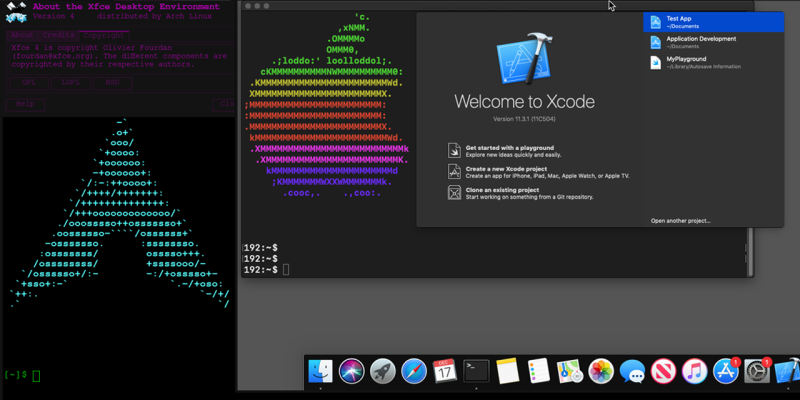
The Docker-OSX project has to be among one of the easiest ways to get a fully functional Hackintosh off the ground on any Linux or Windows (10+) system, with the Docker image handling the heavy lifting of keeping the copy of MacOS happy and satisfied, even as the legality remains questionable, as we previously reported on in 2021. Officially, Apple’s software license for MacOS states that it can only be installed and use on Apple-branded hardware, which precludes the installation in e.g. a Docker container. This has left Docker-OSX in a gray zone where it’s technically illegal, but as it’s being advertised by its developer [Sick Codes] to be for use by security researchers who participate in Apple’s Bug Bounty program (including iOS, which requires XCode, which requires MacOS, etc.), it seems to slip through the cracks.
An obvious issue which may soon spell the end of MacOS-on-x86_64 and with it this use of Docker-OSX is that MacOS is now straddling Apple Silicon and Intel’s x86_64 architecture, with the latter no longer being sold by Apple’s in any of its systems after the recent introduction of its Apple Silicon-based Mac Pro. Although MacOS Sonoma (14) still supports x86_64, this support could be cut in MacOS 15 or 16, at which point running Docker-OSX with an Apple Silicon-only MacOS image would at the very least require an AArch64-based ARM system, though likely with an ISA extension level that matches the lowest-end Apple Silicon (ARMv8.5-A for M1).
Although this should not make it impossible to run Docker-OSX on future Linux (and perhaps Windows) systems on AArch64-based systems, it would make it more complicated and expensive as using one’s existing x86_64-based PC is no longer an option aside from adding a sluggish Qemu layer in between, which would add a significant performance penalty. If you are using Docker-OSX, what are your experiences and plans here?
0 Commentaires